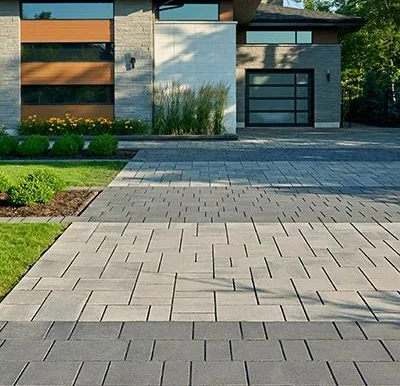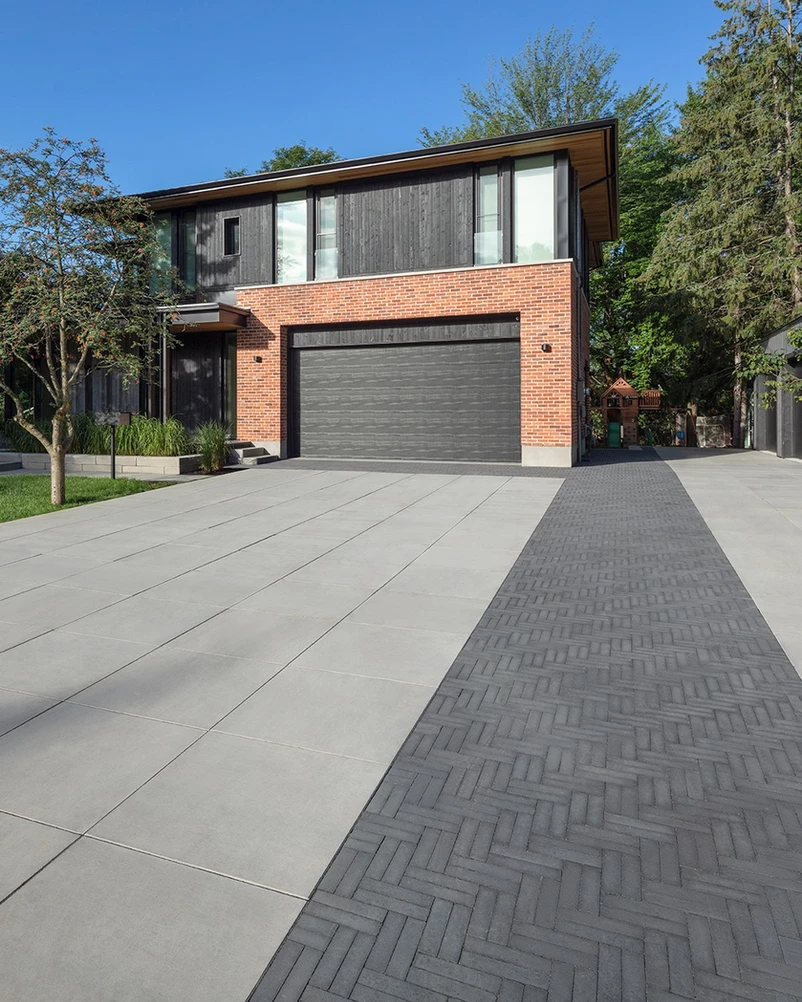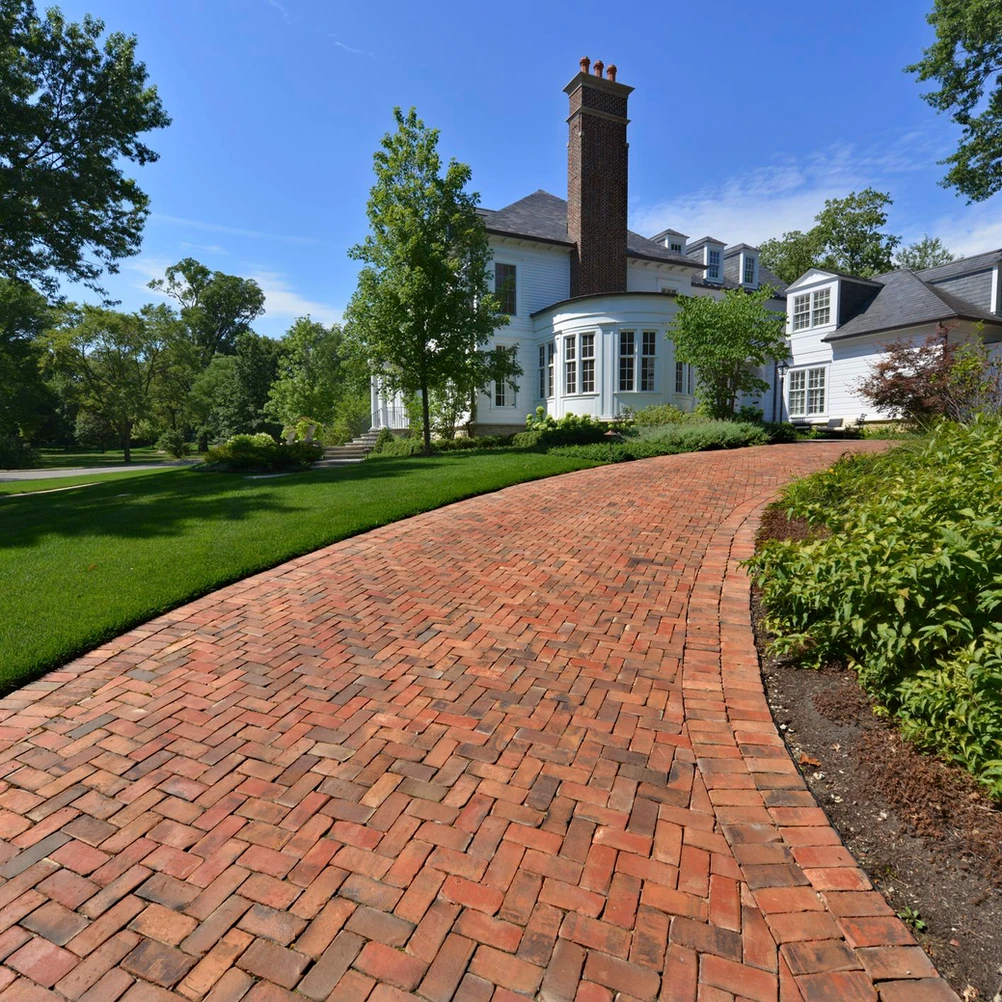Pavers can vary greatly based on the material and color you are looking for. Some of the different materials you can find pavers in are brick (clay), concrete, flagstone, marble, travertine, porcelain, natural stone, and rubber. Pavers are regularly used to create walkways, pool decks, patios, driveways, and more. The two most commonly used type of pavers are concrete pavers and brick pavers. Each have their own pros and cons.


Concrete pavers are made up of dry concrete mix containing cement, sand, gravel, and pigments. They are long lasting and durable with a lifespan of 25-50 years! Concrete pavers are pretty easy to maintain, with very little maintenance needed over time. They can come in various shapes and sizes allowing you to create unique designs. Concrete pavers are also available in a variety of finishes including smooth finishes, natural stone textures, cobbled looks, antique tumbled looks, and more. Even though concrete pavers don’t retain color as well as other pavers, such as brick pavers, they have a lot more color blends to choose from including blends of warm colors, cool colors, deep shades, and more. The price of installing concrete pavers varies depending on the type of concrete pavers, square feet of the space, and other factors. You can expect to pay anywhere from $12-$35 per square foot for concrete pavers with labor included. Even though pouring concrete slabs is cheaper than installing actual concrete pavers, concrete pavers are more durable and offer greater value in the long run.
Concrete pavers are made up of dry concrete mix containing cement, sand, gravel, and pigments. They are long lasting and durable with a lifespan of 25-50 years! Concrete pavers are pretty easy to maintain, with very little maintenance needed over time. They can come in various shapes and sizes allowing you to create unique designs. Concrete pavers are also available in a variety of finishes including smooth finishes, natural stone textures, cobbled looks, antique tumbled looks, and more. Even though concrete pavers don’t retain color as well as other pavers, such as brick pavers, they have a lot more color blends to choose from including blends of warm colors, cool colors, deep shades, and more. The price of installing concrete pavers varies depending on the type of concrete pavers, square feet of the space, and other factors. You can expect to pay anywhere from $12-$35 per square foot for concrete pavers with labor included. Even though pouring concrete slabs is cheaper than installing actual concrete pavers, concrete pavers are more durable and offer greater value in the long run.

Brick pavers are made from molded clay and are set on a mortar or sand base. They are made from natural materials which can be reused, cleaned or salvaged making them an eco-friendly option. Brick pavers can last up to 25 years with proper upkeep. They require more upkeep than concrete pavers, and typically don’t last as long as concrete pavers. They are available in limited colors, but retain color better than concrete when exposed to UV rays. Brick has a strength rating of 12,000lbs per square foot, making it the stronger option. However, it is more fragile than other pavers and can disintegrate overtime due to weather and other factors. They are typically more expensive than concrete pavers ranging from $15-$40 per square foot. Again, this price varies on several factors, typically the larger the space the less you will pay per square foot. Brick pavers are a good option for you if you like the aesthetic, value the fact that they are recyclable, and don’t mind the recurring maintenance needed over the years.
What types of landscape projects don't need a design?
If you are looking to do a very simple landscaping project you may be wondering, do I really need a design for this? Truth is, there are projects that don’t necessarily need a design. For example, if you are just interested in installing a lawn with irrigation, or replacing your driveway with pavers then no design is necessary. Projects with a singular and straight forward focus do not necessarily require a design. If there is planting involved you will most likely need at least a basic plant design, unless you know exactly what kind of plants you want and how many; in which case you may be able to get at least an estimate without a design.
We hope this information has helped you come closer to making a decision on which pavers are right for you. If you would like more information or to receive a quote for your property contact us at 818-751-2690.
